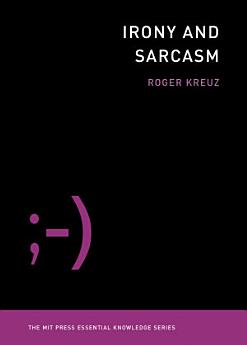Irony and Sarcasm
02/2020 · MIT Press
1,0star
1 críticareport
Livro eletrónico
232
Páginas
family_home
Elegível
info
reportAs classificações e as críticas não são validadas Saiba mais
Acerca deste livro eletrónico
A psycholinguist explores the use and misuse of the words “irony” and “sarcasm” throughout history!
Isn’t it ironic? Or is it? Never mind, I'm just being sarcastic (or am I?).
Irony and sarcasm are two of the most misused, misapplied, and misunderstood words in our conversational lexicon. In this volume in the MIT Press Essential Knowledge series, psycholinguist Roger Kreuz offers an enlightening and concise overview of the life and times of these two terms, mapping their evolution from Greek philosophy and Roman rhetoric to modern literary criticism to emojis.
Kreuz describes 8 different ways that irony has been used through the centuries, proceeding from Socratic to dramatic to cosmic irony. He explains that verbal irony—irony as it is traditionally understood—refers to statements that mean something different (frequently the opposite) of what is literally intended, and defines sarcasm as a type of verbal irony. Kreuz outlines the prerequisites for irony and sarcasm (one of which is a shared frame of reference); clarifies what irony is not (coincidence, paradox, satire) and what it can be (among other things, a socially acceptable way to express hostility); recounts ways that people can signal their ironic intentions; and considers the difficulties of online irony. Finally, he wonders if, because irony refers to so many different phenomena, people may gradually stop using the word, with sarcasm taking over its verbal duties.
Isn’t it ironic? Or is it? Never mind, I'm just being sarcastic (or am I?).
Irony and sarcasm are two of the most misused, misapplied, and misunderstood words in our conversational lexicon. In this volume in the MIT Press Essential Knowledge series, psycholinguist Roger Kreuz offers an enlightening and concise overview of the life and times of these two terms, mapping their evolution from Greek philosophy and Roman rhetoric to modern literary criticism to emojis.
Kreuz describes 8 different ways that irony has been used through the centuries, proceeding from Socratic to dramatic to cosmic irony. He explains that verbal irony—irony as it is traditionally understood—refers to statements that mean something different (frequently the opposite) of what is literally intended, and defines sarcasm as a type of verbal irony. Kreuz outlines the prerequisites for irony and sarcasm (one of which is a shared frame of reference); clarifies what irony is not (coincidence, paradox, satire) and what it can be (among other things, a socially acceptable way to express hostility); recounts ways that people can signal their ironic intentions; and considers the difficulties of online irony. Finally, he wonders if, because irony refers to so many different phenomena, people may gradually stop using the word, with sarcasm taking over its verbal duties.
Classificações e críticas
1,0
1 crítica
Acerca do autor
Roger Kreuz is Associate Dean and Director of Graduate Studies in the College of Arts and Sciences and Professor of Psychology at the University of Memphis. He is the coauthor (with Richard Roberts) of Becoming Fluent: How Cognitive Science Can Help Adults Learn a Foreign Language, Getting Through: The Pleasures and Perils of Cross-Cultural Communication, and Changing Minds: How Aging Affects Language and How Language Affects Aging (all published by the MIT Press).
Classifique este livro eletrónico
Dê-nos a sua opinião.
Informações de leitura
Smartphones e tablets
Instale a app Google Play Livros para Android e iPad/iPhone. A aplicação é sincronizada automaticamente com a sua conta e permite-lhe ler online ou offline, onde quer que esteja.
Portáteis e computadores
Pode ouvir audiolivros comprados no Google Play através do navegador de Internet do seu computador.
eReaders e outros dispositivos
Para ler em dispositivos e-ink, como e-readers Kobo, tem de transferir um ficheiro e movê-lo para o seu dispositivo. Siga as instruções detalhadas do Centro de Ajuda para transferir os ficheiros para os e-readers suportados.






